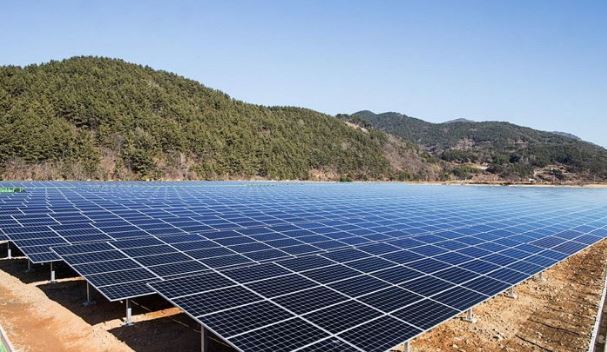In terms of renewable energy usage, Korea lags behind most of the world
By Shim Woo-hyunPublished : Aug. 2, 2020 - 16:53

South Korea generates relatively little power from renewable energy, lagging behind most of the world’s countries, a report showed Sunday.
According to the data compiled by France-based energy consulting firm Enerdata, renewable energy-based power generation accounted for only 4.8 percent of the nation’s net power generation, putting Korea 40th among 44 nations.
The countries that appeared further down the list were all oil-producing nations from the Middle East, where demand for renewable energy has stayed very low.
In terms of renewable energy use, Korea was far below average for Organization for Economic Cooperation and Development member nations, as well as for the Asian nations studied.
Average power generated from renewable energy among the 30 OECD nations stood at 27 percent, while the average for eight Asian nations including Korea posted 23.7 percent.
Korea is making a slow shift from fossil fuels to renewable energy. The electricity generated from renewable sources here increased by only 3.1 percentage points since 2009, from 1.7 percent.
The 30 OECD nations studied saw a 9.3 percentage point increase on average since 2009. Renewable energy-based power generation increased by 8.7 percentage points in the Asian nations.
Korea’s low usage of renewable energy is mainly the result of its reliance on cheap nuclear and coal-fired power generation, according to industry watchers.
The nation’s overall power generation fell 6.2 percent in May from the same period last year in the wake of the pandemic, according to the Korea Electric Power Corp.’s report on electricity statistics. But the combined proportion of coal and nuclear power generation was 72 percent, up from 67.1 percent on-year.
Meanwhile, Norway generated 97.6 percent of its power from renewable energy, taking first place. Brazil came in second place with 82.3 percent, and New Zealand followed with 81.9 percent.
By Shim Woo-hyun (ws@heraldcorp.com)









![[Today’s K-pop] BTS pop-up event to come to Seoul](http://res.heraldm.com/phpwas/restmb_idxmake.php?idx=644&simg=/content/image/2024/04/17/20240417050734_0.jpg&u=)
![[Graphic News] More Koreans say they plan long-distance trips this year](http://res.heraldm.com/phpwas/restmb_idxmake.php?idx=644&simg=/content/image/2024/04/17/20240417050828_0.gif&u=)







![[KH Explains] Hyundai's full hybrid edge to pay off amid slow transition to pure EVs](http://res.heraldm.com/phpwas/restmb_idxmake.php?idx=652&simg=/content/image/2024/04/18/20240418050645_0.jpg&u=20240419100350)

